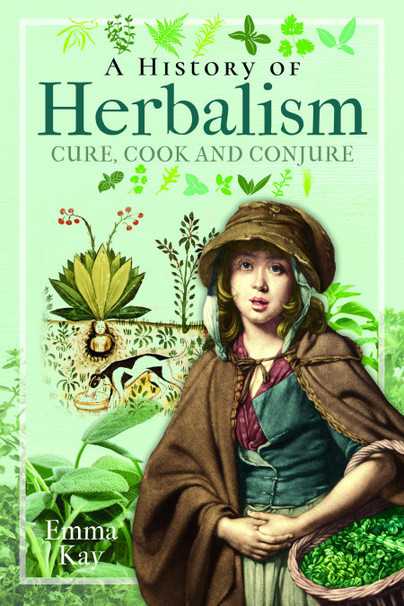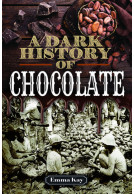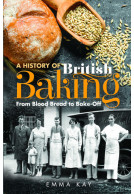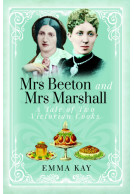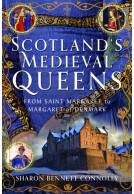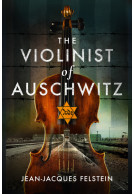A History of Herbalism (Hardback)
Cure, Cook and Conjure
Imprint: Pen & Sword History
Pages: 224
Illustrations: Integrated mono images
ISBN: 9781399008952
Published: 15th June 2022
(click here for international delivery rates)
Need a currency converter? Check XE.com for live rates
| Other formats available - Buy the Hardback and get the eBook for £1.99! | Price |
|---|---|
| A History of Herbalism eBook (44.4 MB) Add to Basket | £6.99 |
Food historian Emma Kay tells the story of our centuries-old relationship with herbs. From herbalists of old to contemporary cooking, this book reveals the magical and medicinal properties of your favourite plants in colourful, compelling detail.
At one time, every village in Britain had a herbalist. A History of Herbalism investigates the lives of women and men who used herbs to administer treatment and knew the benefit of each. Meet Dr Richard Shephard of Preston, who cultivated angelica on his estate in the eighteenth century for the sick and injured; or Nicholas Culpeper, a botanist who catalogued the pharmaceutical benefits of herbs for early literary society.
But herbs were not only medicinal. Countless cultures and beliefs as far back as prehistoric times incorporated herbs into their practices: paganism, witchcraft, religion and even astrology. Take a walk through a medieval ‘physick’ garden, or Early Britain, and learn the ancient rituals to fend off evil powers, protect or bewitch or even attract a lover.
The wake of modern medicine saw a shift away from herbal treatments, with rituals and spells shrouded with superstition as the years wore on. The author reveals how herbs became more culinary rather than medicinal including accounts of recent trends for herbal remedies as lockdown and the pandemic leads us to focus more on our health and wellbeing.
Herbs are more than just flavor enhancers or medicinal ingredients—they’re woven into the tapestry of human history, culture, and survival. In "A History of Herbalism: Cure, Cook, and Conjure," food historian Emma Kay dives deep into the fascinating evolution of herbalism, revealing its myriad uses and the stories of those who cultivated, studied, and relied on herbs across centuries.
NetGalley, June Lee
Kay’s book is divided into distinct sections that guide readers through the history of herbalism, an A-Z catalog of herbs, and finally, recipes showcasing their culinary, magical, and medicinal applications. The historical section is particularly captivating, as Kay paints vivid portraits of medieval apothecaries, resourceful herbalists, and even controversial "quack doctors" who straddled the line between legitimate healing and hazardous guesswork. Names like Nicholas Culpeper, a pivotal figure in early herbalism, and Dr. Richard Shephard, who grew angelica for medicinal purposes in the 18th century, come alive on the page.
The book also highlights the cultural and spiritual dimensions of herbalism. Kay explores how ancient beliefs, including paganism and witchcraft, infused herbs with mystical significance. This section feels like a walk through a medieval “physick” garden, where plants were not just remedies but symbols of protection, love, and power.
Kay doesn’t shy away from the darker side of herbalism’s history. There are fascinating, if sometimes grisly, anecdotes about dangerous remedies and harmful concoctions that remind us how trial-and-error shaped medical knowledge. For instance, the chapter on “Quackery and Hazardous Herbology” reveals how enthusiasm for herbal cures sometimes outpaced scientific understanding, leading to risky experiments with human health.
The latter sections go into the magical and medicinal uses of individual herbs, as well as the shift from treating them as sacred, healing tools to integrating them into modern cooking. The inclusion of historical recipes is a nice touch, allowing readers to recreate herbal concoctions from bygone eras.
A History of Herbalism: Cure, Cook and Conjure is an interesting and informative treatise, featuring the use of herbs in healing and food preparation, and it traces the history of some of these herbs, leaving the reader wishing for even more historical anecdotes.
Anna R. Chelariu, The Journal of Folklore Research
I have a passing interest in herbalism and learning the uses of herbs. The author has produced an excellent reference book on the subject. She certainly knows her facts and has researched well. It is a book which I found easier to leaf through and land on interesting things rather than read through from the beginning. However it contains fascinating and a bit gory details on the history and uses of herbs. Thanks to Netgalley, Pen & Sword publishers and the author for a great read.
NetGalley, Carol Elizabeth Keogh
What an interesting book!
For the Love of Books
As the title teases, within the pages are cures for ills, recipes, legends and facts all with herbs at their foundation.
With black and white pictures adorning the pages, there’s a lot included and a great resource for gardeners and historical writers alike. Possibly an unusual thing to say in a review, but this book is packed with so much that the author certainly did her research.
If the answer you seek is not included, look again because this author left nothing out.
A great resource for curious minds.
I'm often tempted to look for natural or herbal remedies for my many and varied ailments - Emma's book is fascinating and educational.
Books Monthly
This was well written and easy to follow. Full of interesting and useful information.
NetGalley, Maggie Cockburn
This book is captivating. You are soon hooked into reading from one chapter to the next. I think this is a great gift for that person in your life who likes trying different herbs: either growing or using or both.
Blackberry Garden
Read the full review here
My mother taught me to use herbs and I know about the tradition of my hometown. This was an interesting and well researched book that made me learn more and I liked it.
NetGalley, Anna Maria Giacomasso
It's well written and compelling... Recommended.
I would recommend this book to anyone interested in the use of herbs in the past, and those who are interested in trying herbal recipes. There is an extensive bibliography and notes included for each chapter. As the herbs are presented in an A- Z list, it is easy to refer to particular herbs, so easy to dip in and out of the book.
Alison Wall, Local history/ nursing and public health groups
In conclusion, I found this book to be an invaluable reference guide to individual herbs.
As featured in
Lancashire and North West Magazine
As featured in the article (as written by the author): 'Medicinal, magical and culinary world of the ancient art of herbalism'
Lancashire Post
As featured in: 'Flavours of the Month'
Lancashire Life
As seen in
Lancashire & North West Magazine, September 2022
As featured in
People's Friend
Rating: 5 out of 5 stars
NetGalley, Anna Elliott
As a post-graduate historian Ms. Kay has presented her material in a knowledgeable and accessible style. She has researched her subject thoroughly and presents her material by dividing the book into three sections which are preceded by an informative introduction which is well worth reading.
She gives equal attention to the way in which herbs have been used in medicine and culinary purposes. There are plenty of recipes along with an exhaustive list of the ways that herbs can be used in healing. She lists their individual properties and their practical applications.
A thoroughly interesting book which I recommend highly.
This is one interesting book, A History of Herbalism and I would like to thank Pen & Sword Books for allowing me to read and review this book. I have to admit that I have always been fascinated by the natural world and its abilities to help us in any sort of medical or health situation. The book is split into three sections in that the first section looks at the history of herbalism and the way it has been perceived by the population. It then goes on to look at herbs and medicinal herbs and their benefit to magic and medicine. Then finally the book has a wide range of recipes that are specific to vegetables, meats, fish and desserts. This is one of those books that you read once but then read again a number of times or look up specifics. I would highly recommend this book to anyone interested in the subject.
The History Fella
Read the full review here
Rating: 5 out of 5 stars
NetGalley, Dawn Lewis
I've been fascinated by the medicinal properties of herbs since I was recommended sage leaf tea for migraines (it worked - but should be used sparingly!), so "A History of Herbalism" was a book I had to grab. It's well-written, but a trifle frantic in the layout. Even so, this is a valuable book (it has recipes!!). We should probably all have a little herb patch (or pots), even if we don't use them... They're great to have around!
A History of Herbalism is a thorough introduction to the use of herbs throughout early modern history. The author focuses on European uses of herbs but includes a little history on eastern uses as well. The images included add to the context really well. Anyone looking for information on specific herbs and their uses will find that information in the text along with cultural and historic contexts as well.
NetGalley, Amy George
What a fascinating read! I learned so much - more than I can begin to articulate. It was well written, concise and I now have an even longer reading list as well as a list of items I'd like to plant! Well done!
NetGalley, Holly Gillum
Rating: 5 out of 5 stars
NetGalley, Lauren B
I thought this was an incredibly informative and well written book. I learned a TON of information about herbalism and its history. I especially liked the section on A-Z herbs and their magical and medicinal uses. The layout of this book was a great decision and it felt like a natural progression. I also loved the recipes and the different dishes outlined in the culinary history section were a great way to end the book and provided a lot of interesting recipes to look through.
Rating: 5 out of 5 stars
NetGalley, Fran Anderson
The book is very well researched, and sources given, including websites. Most importantly, it’s very readable, and the old recipes quite fascinating. It should appeal to a pretty wide range of readers.
Rating: 5 out of 5 stars
NetGalley, Sandra Rogaskie
A great informative book on Herbalism. A in-depth history of plants used for medicinal and cooking. The author goes extra length to give such details and even includes recipes. Perfect guide for learning and uses for Herbalism .
Rating: 5 out of 5 stars
NetGalley, Amanda Abend
This book is divided into three parts. The first provides an overview of a history of botanists and herbalists, complete with sources and citations. The second section acts as an herbal directory, detailing herbal history as well as medicinal properties of each herb; and the third section includes various recipes to create with the herbs featured in the book.
In a much larger sense, this book explores how we might improve society (and ourselves) by better appreciating plants -- not just what they give us, but also how they grow to achieve their own purposes. What would it mean to learn from these organisms, to become more aware of our environments, and to adapt to our own worlds by calling on perception and awareness?
If you are looking for an informative history book on plants and herbs, you should read A History of Herbalism by Emma Kay.
This is a great book. It tackles a broad topic and has done an excellent job of maintaining interest while being enlightening. Even if you’ve read several books on herbs and herbals you’ll find something new here.
NetGalley, Jessica Strider
Rating: 5 out of 5 stars
NetGalley, Sandy Sandmeyer
I wasn't sure exactly what to expect when I received A History of Herbalism to review but what I did discover was a very thoroughly written British history of herbalism. From using herbs for health and healing to the darker side of magic and witchcraft, this book covers herbs in a very interesting way.
A History of Herbalism is written in three sections: the history of herbalism, the magic and medicinal history and uses of herbs, and recipes from the past using herbs.
In chapter one, the author shares the history of herbalism from the earliest of times and includes information from botanists, scientists, herbal practitioners, and illustrators to herbs being used in medical practices and hospitals. She includes information about herbal quackery and the hazardous uses of herbs.
Chapter two is all about herbs for medicinal and magical uses. She dedicates a section to each of the topics from A to Z. These sections are very interesting. The author uses actual archaic writings as the descriptions of the herb's uses and translates when necessary.
In the final chapter, the author shares (and translates) historical recipes to show the culinary traditions using herbs. Some of these recipes are even used for treating medical conditions, such as a fish recipe for jaundice.
All-in-all, A History of Herbalism was incredibly interesting and informative. I learned a lot about the people who were a part of herbalism, about the herbs themselves, and about the uses of herbs. This is a great book for those who are interested in studying herbalism and those who enjoy studying history.
Rating: 5 out of 5 stars
NetGalley, Lori Alden Holuta
By the time I finished reading the title, "A History of Herbalism: Cure, Cook and Conjure", I was already clicking my mouse to grab this book, which I did *not* set aside to read later. I gleefully dove into it immediately. Seeing as how I love history, and am a forager and user of medicinal and edible herbs, how could I not? The cover art is also enticing and delightful.
The book is divided into three distinct sections, so I'll talk about each of them in turn. Don't skip over the introduction though, it's packed with historic information that will give you some background and set the stage for the chapters to follow. Also, keep in mind that this book focuses mainly on British herbalism history.
Chapter 1: From 'Witches' to Botanists: British Pioneers, Popularists and Everyday Herbalists
Here's an absorbing mix of herbal medicine history, quotes from very old books, illustrations, photographs, and enough trivia to give you conversation fodder for the rest of your life. Those interested in Women's Studies will learn about the early history of white witches, midwives, and healers. It should come as no surprise that women excelled as herbalists, yet were often punished for practicing those skills. I also enjoyed learning more about quackery, herb illustrators, and the first hospitals.
Chapter 2: Magic and Medicine
Now we get into usage guides, one herb at a time. Many ancient incantations are included. I was amused by the entry on chamomile, which in part read, "Traditionally, it was grown in alleys and walkways and on the banks of rivers, as it was understood that the more chamomile plants were pressed and trodden down, the more abundantly they would grow." My own driveway is proof positive that this is the truth!
Chapter 3: Culinary Transition
This section covers the British use and importing of herbs for cooking. There's a wealth of medieval recipes, including the old medieval spellings - almaund mylke, anyone? Modern translations are included with each historic recipe. These are fascinating to read from so many angles - history, language and how it changes over time, the ingredients used, what properties were attributed to the ingredients... I was quite absorbed in this section (that's the foodie in me, I'm sure) and enjoyed reading every word. Oh, and I think Boiled Green Dumplings actually sound delicious, and I may attempt a version of them very soon.
For the academically inclined, there's heaps of cited references at the back of the book, and a large bibliography. This book should also be of great interest to authors of historical fiction, as a tool to help bring their stories to life.
Rating: 5 out of 5 stars
NetGalley, Michelle Smith
An herbal history written by a food historian. This is exactly something I find utterly intriguing, and I eagerly accepted the opportunity to read an advance copy of this.
Growing up, I was always fascinated by my Italian grandfather’s herb and produce garden - and helped him regularly, learning from his example and words. When I was playing alone, I would make potions. As I grew up, I studied herbs under a mentor for my own benefit and use, and once I became a parent and my youngest child was diagnosed with severe food allergies, given an epi-pen, and that one of her allergens would be so frequently found in many topical products, it was necessary to start making our skin care products and cooking everything from scratch. I started studying again, and became a certified herbalist over ten years ago. I’ve continued with my studies and recipe creation. What started out of need has become a pleasure.
I came to this book from the viewpoint that I am always learning; I will never know enough of the earth and what she gifts us. And this book was fantastic. Thoroughly and wonderfully fantastic. While I did find the history in the beginning of the book to read a little dry; all the rest was fascinating, including the recipes. This is a book I’ll purchase to put in my bookshelf alongside my collection of helpful herbal tomes.
All in all, this is a commendable, excellent resource, and one I especially recommend to herbal students, fans of history, other people in the world who are as obsessed as I am with really old recipes, and gardeners.
Rating: 5 out of 5 stars
NetGalley, Amina Benhenni
I love this! I'm off to buy a hardcopy right now. Amazing information about herbs, with their history and significance. Very nice as a gift and I love an engaging and educational read. Will be picking this up off my shelf often.
Rating: 5 out of 5 stars
NetGalley, Karen Hammond
This is an fascinating book, it certainly covers herbs and herbalism. I found the old recipes especially interesting but no so sure they would go down well with the family. The diverse references to different historical periods were so well written. I learnt a lot. Will continue to dip in and out of this book.
Rating: 5 out of 5 stars
NetGalley, Jane MacKinnon
This book is an absolute joy to read and a fountain of information. If you ever need to know more about herbs and their origins then this the book for you. I will be rereading this quite a few times and buying for gifts. Well done Emma Kay.
Rating: 5 out of 5 stars
NetGalley, Cindi Austin
I’ve read so much on herbs and am a clinically certified aromatherapist, but this history and the broader spectrum of information in this book really makes this like any other book I have ever ready on herbalism. Just like Christianity was based on Pagan beliefs, customs and holidays, here too we have examples of how herbs have fared over time and have come back around again.
If you are even slightly interested in this topic, this book will be a great read for you. if you’re into herbs and history, then this book is REALLY going to be a great read for you. I am highly impressed with the content and it will have a place on my bookshelf for years to come.
This is quite a comprehensive view of herbalism throughout the ages! Anyone who's interested in both history and herbal medicine will find this a fascinating read. It's a no-nonsense dive into the past views, pioneers, and uses of herbs in healing.
NetGalley, Jessica Kougl
About Emma Kay
Emma is a post-graduate historian and former senior museum worker. Now a food historian, author, and prolific collector of Kitchenalia, she is a member of The Guild of Food Writers. Her articles have appeared in publications including BBC History Magazine, The Daily Express, Daily Mail, Times Literary Supplement and The Victorian Review. She has featured on numerous national and international radio programmes and podcasts and contributed historic food research for several TV production companies.
During 2021 Emma cooked and presented a selection of historic dishes from the Regency era to accompany a new CTVC series for Channel 4 and was interviewed and filmed demonstrating Medieval cooking techniques for a documentary series on KBS-TV in South Korea.
In 2020 Emma created a Roman banquet and presented the origins and influences of Roman cooking for Channel 5 series Walking Britain’s Roman Roads.
At the end of 2019 Emma appeared as an expert contributor across several episodes of Channel 5 series, Britain’s Lost Battlefields.
In 2018 she appeared in a ten-part series for the BBC and Hungry Gap Productions, The Best Christmas Food Ever and on BBC Countryfile, co-presenting a feature exploring the heritage of the black pear with Anita Rani.
Published titles
Dining with the Georgians (Amberley Publishing, 2014), Dining with the Victorians (Amberley Publishing,2015), Cooking up History: Chefs of the Past (Prospect Books, 2017), Vintage Kitchenalia (Amberley Publishing,2017), More than a Sauce: A Culinary History of Worcestershire (Amberley Publishing,2018), Stinking Bishops and Spotty Pigs: A History of Gloucestershire's Food and Drink (Amberley Publishing, 2019).
A History of British Baking (Pen & Sword Books, 2020)
A Dark History of Chocolate (Pen & Sword Books, 2021)
Medieval Plants and their Uses (Hardback)
Plants were an essential part of medieval life. Most people lived in houses made of wood and thatch, which often accidentally burned down when they cooked their food or huddled over wood fires to keep warm. People wore linen clothing dyed with plants. They drank ale, cider and wine as they danced to music played on wooden instruments. Beauty, love and seduction could all be made easier with a few herbal preparations. If you became ill, plants provided many of the cures. The unwary may have mistaken a poisonous plant for one that was good to eat, with fatal consequence. Others may have used the…
By Michael BrownClick here to buy both titles for £45.00







